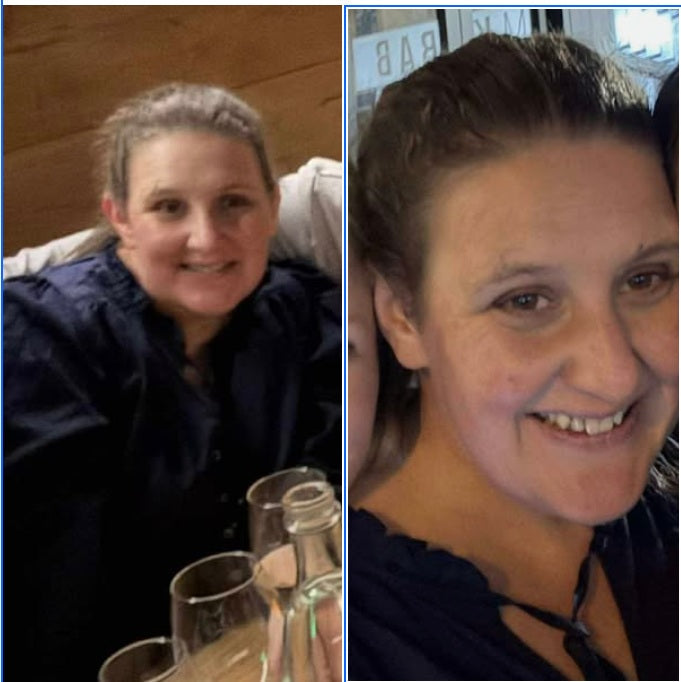
Real mum story: How exercise is helping me deal with Menopause
Kate, 47, joined Zing Wellbeing to help with her bloating and menopause symptoms.
Kate shares, "I’m fairly new to Zing Wellbeing Health Program, but I’ve taken to the program like a duck to water.
The no-frills, no-fuss meals in the app make life so much easier.
Nearly every recipe can be scaled up for meal prep or freezer cooking, and honestly? Every single one I’ve tried has been so simple and sooo delicious.
Since joining in mid-August, I’ve lost 3kg — which I’m thrilled about — but what’s blown me away is how much less bloated my face looks.

I hadn’t even realised how puffy I was until now!
My jeans are looser, my… umm… bathroom visits have been a lot more pleasant and most importantly, I have the energy and drive to do what I love: lift weights and run.
There’s still a long way to go on my journey, but I know I can get there with this program. No BS.
Just real food, a mindset shift around food as fuel and medicine, and a community that is honestly one of the kindest, most supportive spaces I’ve seen on social media."
How I'm dealing with Menopause

Perimenopause can feel like your body swapped its instruction manual for a mystery novel.
One minute you’re fine, the next you’re sweating like you’ve run a marathon—while sitting
perfectly still in a Zoom meeting. Sleep decides it’s optional, moods have more plot twists
than a Netflix drama, and your jeans seem to be shrinking in the wash (surely it’s the washing machine, right?).
The good news? Exercise is one of the best ways to wrestle back some control. It won’t stop your hormones from doing their rollercoaster routine, but it can help you feel stronger, sleep better, and maybe even laugh at the madness along the way.
You can find lots of workouts on the Zing Wellbeing app.
Night Sweats: The First Wake-Up Call

The first symptom I noticed was night sweats—and boy, aren’t they fun?
Four years ago, I Googled: “what can help with night sweats?”
Here’s what I found:
Regular aerobic activity like walking, swimming, or cycling can reduce the intensity
and frequency of hot flashes.
Yoga before bed can calm your nervous system and support better sleep.
Now, I still have occasional night sweats, but thanks to daily exercise, they’re nowhere near
as bad as they used to be.
Protecting Bone Health

The same Google deep dive taught me that declining estrogen during peri (and menopause) can increase the risk of osteoporosis.
My next question: “how do I protect my bones?”
Answer: weight-bearing exercises.
I started lifting weights and… I loved it.
Have I noticed a direct difference in bone density? Hard to tell.
Have I gotten stronger and seen changes in my body shape? Absolutely.
Let’s assume the experts are right: stronger muscles + weight-bearing exercises = stronger
bones.
Making Exercise a Habit
Now, my routine includes:
Walking or running
Weight training
Yoga or gentle stretching every night
It’s become second nature, so I don’t even think about it anymore. That’s freed me up to
focus on nutrition and how my diet can further reduce symptoms.
Watch this space—I’ll be diving into that next!

Kate shares her meal prepping tips
As nutrition and diet is also an important factor during menopause, Kate is spending time focusing on what foods she puts in her body.
- Low Carb Zuccini Slice for lunches
- High Protein Brownies for my kids school lunches (you know I’ll be having a couple too haha)
- High protein Sheppards Pie (all I need to do tomorrow night is put it together and whack it in the oven)
- Cut up veggies ready for the Mexican Chipotle Rice on Tuesday night

